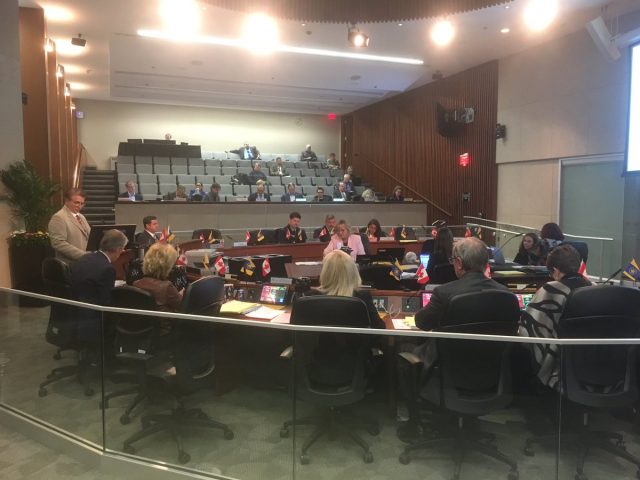The menstruation debate has concluded, for now, at Hamilton City Hall.

One week after rejecting the idea of providing pads and tampons in the washrooms of some municipal facilities, council has approved a repackaged motion that targets the initiative specifically at women with a “financial need.”
The successful motion, presented by Ward 4 Coun. Sam Merulla, will “explore the feasibility of providing menstrual products to those with financial need for assistance.”
The motion asks staff to report back to the board of health “outlining specific target populations, location and distribution options, costs and an evaluation plan for a 12-month pilot project.”
Staff are also asked to seek potential private sponsors of the initiative. Flamborough Coun. Judi Partridge says that is already happening across the city and she hopes to bring those organizations together for a “common cause.”
Last week’s failed motion at the city’s board of health meeting, presented by Ward 1 Coun. Maureen Wilson, would have supplied the products for free in some municipal restrooms, with a goal “to move toward” providing them more broadly.
FemCare Community Health Initiative founder Halima Al-Hatimy told Global News Radio 900 CHML that approving the repackaged motion is “totally a step in the right direction.”
LISTEN: FemCare Community Health Initiative founder Halima Al-Hatimy Talks to Global News Radio 900 CHML about City Hall’s menstruation debate
However, in light of the provinces, recent pressure on cities to find 4% of savings through operational costs, Al-Hatimy says getting private sponsors on board would be key to covering costs.
“I know there’s trepidation around getting private sponsors on board to help with the health issue,” said Al-Hatimy, “However we have had a number of corporate sponsors supporting our work so far and we wouldn’t have been able to do this work if it wasn’t for the assistance.”
Al-Hatimy says the initiative would support thousands of people across Hamilton should they be able to fund and sell products for those in need. She suggests costs would be somewhere around $80 to $153 per person per year, with the average about $87.
WATCH: What is period poverty? Study finds women under 25 struggling to afford menstrual products (May 2018)









Comments